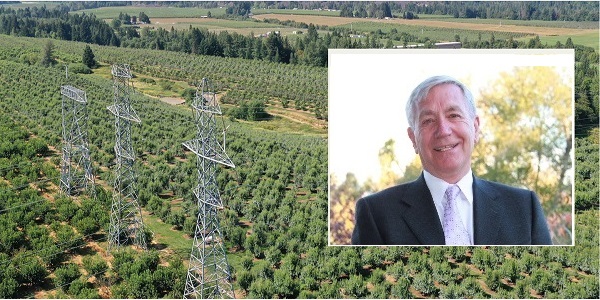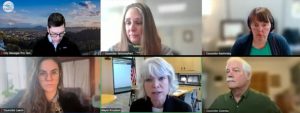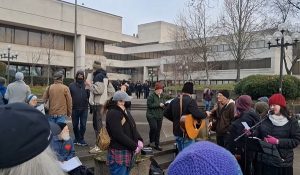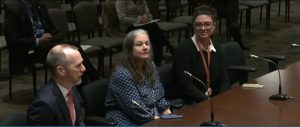EWEB commissioner explains big rate increases ahead
3 min read
Your EWEB bill is going to jump. Speaking with Northeast Neighbors May 30:
[00:00:06] John Brown (EWEB commissioner): My name is John Brown. I’ve been on EWEB Board 17 years. I believe this is going to be my last term…
[00:00:11] We’ve done everything we can to keep your rates low. We haven’t raised them in five years (except for last year, a couple percent this year). They’re going to go up, both water and electricity.
[00:00:18] We buy 65% of our electricity from Bonneville (Power Administration). They’re raising their rates and we have to pass that through. We, you know, we’ve done our best, but rates are going to go up.
[00:00:27] In the next 10 years, rates are projected to go up about 35%, and that’s without a $250 million to $270 million expenditure on the McKenzie. We have to deal with the decommissioning of the Leaburg power generating facility.
[00:00:42] Your water rates are going to go up too, because we have to build a $90 million second water treatment plant on the Willamette because we’re the largest city in the West without a second source.
[00:00:51] Because if we lose the McKenzie, you have no drinking water. We’ve got maybe a two-day supply and that’s it. So we’re going to build a redundant system on the Willamette, but that’s going to raise your rates.
[00:01:00] Sorry to be the dark cloud, but I’ve been able to say this, for five years, it’s been good news. Now it’s going to be a little bit of challenging news, but I think if you average it out, the increases we’ve had over the last five to 10 years are still below inflation.
[00:01:14] So, any questions?
[00:01:16] John Q: He was asked if EWEB can get federal funds.
[00:01:20] John Brown (EWEB commissioner): The federal government should be kicking into this. The feds are making us tear out the dam and do everything, you know, because they won’t let us.
[00:01:26] Northeast Neighbor: The (Army) Corps of Engineers should be involved in this as well.
[00:01:28] John Brown (EWEB commissioner): There’s a lot of fund sources and we’ve applied to the feds, we’ve applied to the state. We’ve applied to the state for money to help us with the second-source water plant. I think we applied for $25 million there. The ARPA funds, the American Rescue Plan. (Right.) So we’re doing everything we can to keep our rates low.
[00:01:42] Northeast Neighbor: And the thing is, I live over here at Falcon Wood (Village), we have a lot of retirees like myself. And some folks are just living on Social Security. And it seems like when the rates go up, they’re going to take a big—
[00:01:53] John Brown (EWEB commissioner): We understand that. We understand that. We are very, very, very sensitive.
[00:01:56] Did you know that two out of the four charges on your EWEB bill are not EWEB. And they’re going up this year and they’re going up significantly next year. Go look at the plans for stormwater and wastewater. Wastewater and stormwater, about 4% and 6% this year. (Right.) Next year, it’s 11%. (Wow.) And we can’t control that. (Sure.) It’s an EWEB bill but half of it’s not ours.
[00:02:13] Northeast Neighbor: Yeah. The next question I have, did you sell your headquarters building finally? Is that going to go to the school district?
[00:02:18] John Brown (EWEB commissioner): No. The city bought it for $12 million.
[00:02:20] Northeast Neighbor: City bought it.
[00:02:20] John Brown (EWEB commissioner): $12 million.
[00:02:21] Northeast Neighbor: I thought that was going to happen years ago.
[00:02:23] John Brown (EWEB commissioner): Well, there’s some people in this room that wanted it to happen years ago, but it didn’t. But it’s happening.
[00:02:28] John Q: Commissioner John Brown warns Northeast Neighbors: Before opening your bill from EWEB the next few years, you may want to be sitting down.




